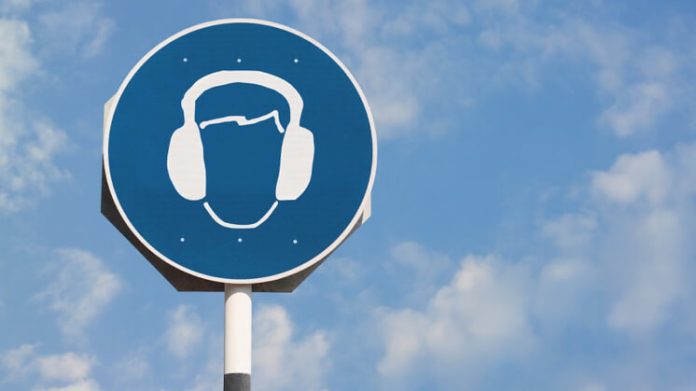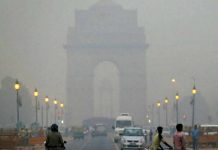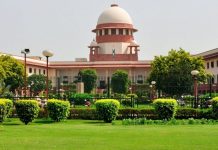This article is written by Jisha Garg, from Rajiv Gandhi National University of Law, Punjab. This is an exhaustive article dealing with the problem of noise pollution in society. The article highlights the reasons for noise control, the various legislations available in India to curb noise pollution, and analyzes its effectiveness. The article also suggests various reforms that are a need of the hour.
Table of Contents
Introduction
According to Nobel Prize winner Robert Koch “a day will come when man will have to fight merciless noise as the worst enemy of health.” Noise pollution can be defined as offensive or unwanted sounds that unreasonably intrude into our daily activities. Unlike other pollutants such as air, water, and soil, noise was not considered an environmental pollutant in early times. It was only after the advent of industrialization when industries began to set up and population increased that noise pollution was seen as a serious threat to the environment and the species alike.
A study conducted by the World Health Organization in 2011 suggests that one million healthy years of life are lost in Europe due to excessive noise pollution. Even Article 45 of the Universal Declaration of Human Rights 1948 stresses on the quality of human living from the health point of view. The article lays stress on the available legislations on the subject and their effectiveness in the society so far.
Need for noise pollution
Physical effects
Noise control is important because it causes various physical health hazards to the people. It leads to various physical impairments such as hearing loss, fatigue, hypertension, headaches, rise in blood pressure, inefficiency at work, etc. With the advent of industrialisation and urbanisation in the society, industrial workers have been the worst victims of the deleterious effects of noise pollution. It has been observed that the continuous exposure to more than 85 db volume has caused headaches, change in moods, and nausea in industrial workers. Another group of people worst affected are the children which affect their learning and reasoning abilities.
Psychological effects
It leads to mental disorders due to undesired noise. Distractions and annoyances due to increased noise cause tensions in modern living. It not only creates new illnesses such as anxiety, depression, and insomnia but aggravates the already present illnesses from allergies, stomach ulcers, and mental illnesses to cardiovascular diseases, neurosis and circulatory diseases.
Economic losses
Noise pollution not only causes physical and psychological effects on humans but also leads to huge economic losses. It includes the costs of the medical treatments on ailments caused due to excessive noise pollution. It also includes the losses caused due to the devaluation of property prices due to non-peaceful environments.
Infringement of Article 21
Noise control is important because everybody has the right to a peaceful environment and a valuable existence and not a mere animal existence as provided under Article 21 of the Indian Constitution. In Re: Noise Pollution case, the court held that “no one can claim a right to create noise even in his own premises that would travel beyond his precincts and cause the nuisance to neighbours or others.”
Various statutes for noise pollution
There is no dearth of laws on the control of noise pollution, but statutory provisions alone are of little or no use unless they are implemented effectively. In the following article, some of the laws dealing directly/indirectly with noise pollution have been discussed.
Aircraft Act, 1934
Under the Aircraft Act of 1934, the Union Government has been vested with the power to make rules for the manufacture, possession, use, operation, sale, import, or export of any aircraft. However, this act does not directly deal with providing any prohibitions on the noise emitted by aircrafts. The only safeguard it provides for the control of noise pollution caused due to the frequent take-off and landing is that the aerodromes used in the aircrafts be constructed far away from residential areas.
It was only after the formulation of the Aircraft Rules of 1946 that the central government was given the power to formulate laws to control air pollution. The rules also imposed a duty on the factories manufacturing aircrafts to take adequate measures to control noise.
The Environment Protection Act, 1986
This Act provides the Central Government with the power to enact rules regulating environmental pollution which takes into its ambit the regulations relating to noise pollution. Section 6 of the Act empowers the government to enact laws for “the maximum allowable limits of concentration of various environmental pollutants (including noise) pollution in different areas.”
Thus, the government under this Act can lay down rules relating to the maximum allowable limits of noise pollution in the environment and any violations in this permissible limit would invite penalties. Entry 89 of this Act also provides for a maximum limit on the noise level generated by firecrackers and prohibits the manufacture of firecrackers in factories beyond the permissible limit. The limit has been set at 125 db(A) or 145 db(C) at 4 meters distance from the point of bursting.
Noise Pollution (Regulation and Control) Rules 2000
The reasoning behind the enactment of these rules was that the noise emitted by loudspeakers, vehicular horns, construction activities, music systems, industries, and other mechanical equipment have an adverse impact on the physical and physiological growth of human beings. These rules were formulated in order to curb the menace of excessive noise pollution from these sources to create an ambient atmosphere for healthy living.
The noise pollution rules prohibit the use of loudspeakers at night and provide provisions for penalties in case permission for the use of such devices is not sought from a competent authority. However, these rules have proven to be inadequate and lack implementation despite the Supreme Court’s repeated reminders.
Police Act, 1861
The Police Act of 1861 provides immense powers to the Superintendent of Police and his subordinates regarding the regulation of noise on the occasion of ceremonies, processions, festivals, marches, etc. Section 30A of the Act vests in the police the power to disperse off the crowd in case of excessive noise pollution during these occasions. This is also seen as one of the drawbacks of the act. Also, the act is silent on the question of noise pollution emitted by various activities under private premises.
Air (prevention and control of pollution) Act, 1981
This Act was originally enacted to regulate the excessive amount of pollutants in the air causing air pollution but it was only after the Amendment Act of 1987 that noise pollution was covered within the definition of air pollutants. Section 16(2)(6) of the Act empowered the Central Pollution Control Board to formulate a nationwide plan to prevent, combat and control air pollution. But after the amendment to the act, the State Pollution Control Board was also given the power to formulate plans on the regulation of noise pollution in the state.
Bihar Control of the Use and Play of Loudspeakers Act, 1955
Section 3 of the Act provides for the restriction in the use of loudspeakers. It prohibits the use of loudspeakers within a distance that may be prescribed from any hospital or any educational institution. Section 6 provides that adequate action could be taken against such acts if the complaint is made by the aggrieved person or on the written report made by the police officer.
Religion vs. noise pollution
The recent controversy
The controversy relating to a conflict of interests between religion and regulations prohibiting noise pollution sparked with the recent order of the Madhya Pradesh government. They have announced a ban on the use of loudspeakers and DJs at Indore’s famous Ranjeet Hanuman temple from 10 pm to 6 am. This invited allegations on the decision by various religious organizations. They have alleged that the state government has banned the use of loudspeakers in only Hindu temples and hence the decision is arbitrary. They also contended that the decision was against their freedom of religion enshrined in the article of the constitution. The sub-divisional magistrate in his defense said that they were merely working on the orders of the Supreme Court in furtherance of the complaint made by people who were experiencing disturbance over the use of loudspeakers in the temple.
The previous judgments
In India v. K.K.R. Majestic Colony Welfare Assn case, the court held that it has all the powers to regulate noise pollution in the environment and can also issue guidelines regarding the same, even if the noise was a result of religious activities. The court also held that the decision to prohibit the use of loudspeakers was not against the right to religion. Although, offering prayers comes under the right to religion but using loudspeakers and other such devices for offering prayers is not covered under the right to religion. Any activity that causes disturbance in the society and becomes an obstacle to the peaceful existence of human beings cannot be permitted. The court contended that the use of loudspeakers disturbed children and old people during their sleep hours and hence its use is prohibited.
Reforms
Reforms in the existing statutes
Ever since the advent of industrialization and urbanization in the country, the issue of noise pollution took a backstage and the legislators did not pay adequate attention to this issue. It is due to this that the present constitutional and legislative provisions are inadequate to prohibit the limits of noise pollution in the surroundings. Presently, there is no exclusive legislation to curb the menace of noise pollution in the country. The remedies provided under other acts are not enough to deter people to avoid spreading noise pollution.
The acts that are already in force such as the Aircraft Act and the Environmental Protection Act are not extensively enacted for noise control but are mere residuary legislations. Some other provisions which are exclusively enacted for the purpose of noise control such as the Noise Pollution Rules, 2000 lack implementation. The rules have partial coverage in the sense that they only prohibit the use of loudspeakers and are silent on other sources of noise pollution. They lack provisions for public awareness leading to non-cooperation by the general public on the issue.
The provisions under the tort law provide for two remedies: they either provide an injunction or an award of damages. The basic principle behind both these remedies is providing compensation and the issue of community noise pollution continues to exist. Even the remedies available under criminal law do not establish any preventive mechanism but are nominally punitive.
Other reforms
- In order to formulate a rigid plan and ensure proper distribution of responsibility, it is important that the relationship between the central and state governments is outlined. Minimum environmental standards need to be laid down by the collective effort of both the governments in order to resolve the conflicts of jurisdictions that may arise in the future. The formation of a national council in order to look into the functioning of the government and how their activities are proving to be instrumental in curbing noise pollution is inevitable. The formation of various expert committees to look into the technicalities is also of primary importance.
- Before formulating policies regarding noise control, it is important that the policy makers take cognizance of the technological advancements taking place around the world. This is because these are the result of the country’s adoption of western technology ignoring the subsequent damages it causes. It is only after the careful study of the new scientific discoveries that minimum standards for noise control need to be laid down. Because one of the reasons for the failure of the previous singular legislations was they had become obsolete and could not solve modern problems. A similar approach needs to be followed by the National Council while granting licenses to industries and in its day-to-day formulation of policies.
- Increased incentives should be provided to factory owners and farmers to encourage the use of quiet technology since industrial equipment and machinery are the major contributors to noise pollution. In order to provide incentives, it is important that successful collaboration between the central and state governments is undertaken.
- At last, the most important part of formulating legislation is the public reasoning. Public consultations should be done while fixing minimum standards for noise pollution. The most important task of legislation i.e. the implementation is also incomplete without the support of the citizens. The laws should be formulated keeping in mind public welfare so that their proper implementation is ensured.
Conclusion
In conclusion, it can be said that amidst the myriad challenges faced by India, combating noise pollution was not the initial agenda. The problem has aggravated due to the initial inaction on the issue. Moreover, the laws that have been formulated are weak and have proved to be ineffective in curbing the menace of noise pollution. The courts have remarked that there is a need to formulate comprehensive laws to deal with the problem before the situation becomes hazardous. Also, there is a need to raise public awareness on the issue because otherwise, the laws lack enforcement. The gap between the law in theory and law in implementation needs to be filled so that the laws formulated could lead to a healthier environment and do not become defunct. In the church of god case, the court then rightly remarked ‘one fundamental right of a person may have to coexist in harmony with the exercise of another fundamental right by others’, which if realized will solve the entire problem.
References
- http://www.ijrhss.org/pdf/v3-i4/5.pdf
- https://www.researchgate.net/publication/232006291_Aspects_of_legislative_cognizance_of_noise_pollution_in_India
- http://www.lawsindia.com/Industrial%20Law/K092.htm
- http://home.uchicago.edu/~mstaisch/Sharad/papers/Legislative%20Aspects%20of%20Noise%20Pollution.pdf
LawSikho has created a telegram group for exchanging legal knowledge, referrals and various opportunities. You can click on this link and join:
 Serato DJ Crack 2025Serato DJ PRO Crack
Serato DJ Crack 2025Serato DJ PRO Crack











 Allow notifications
Allow notifications


